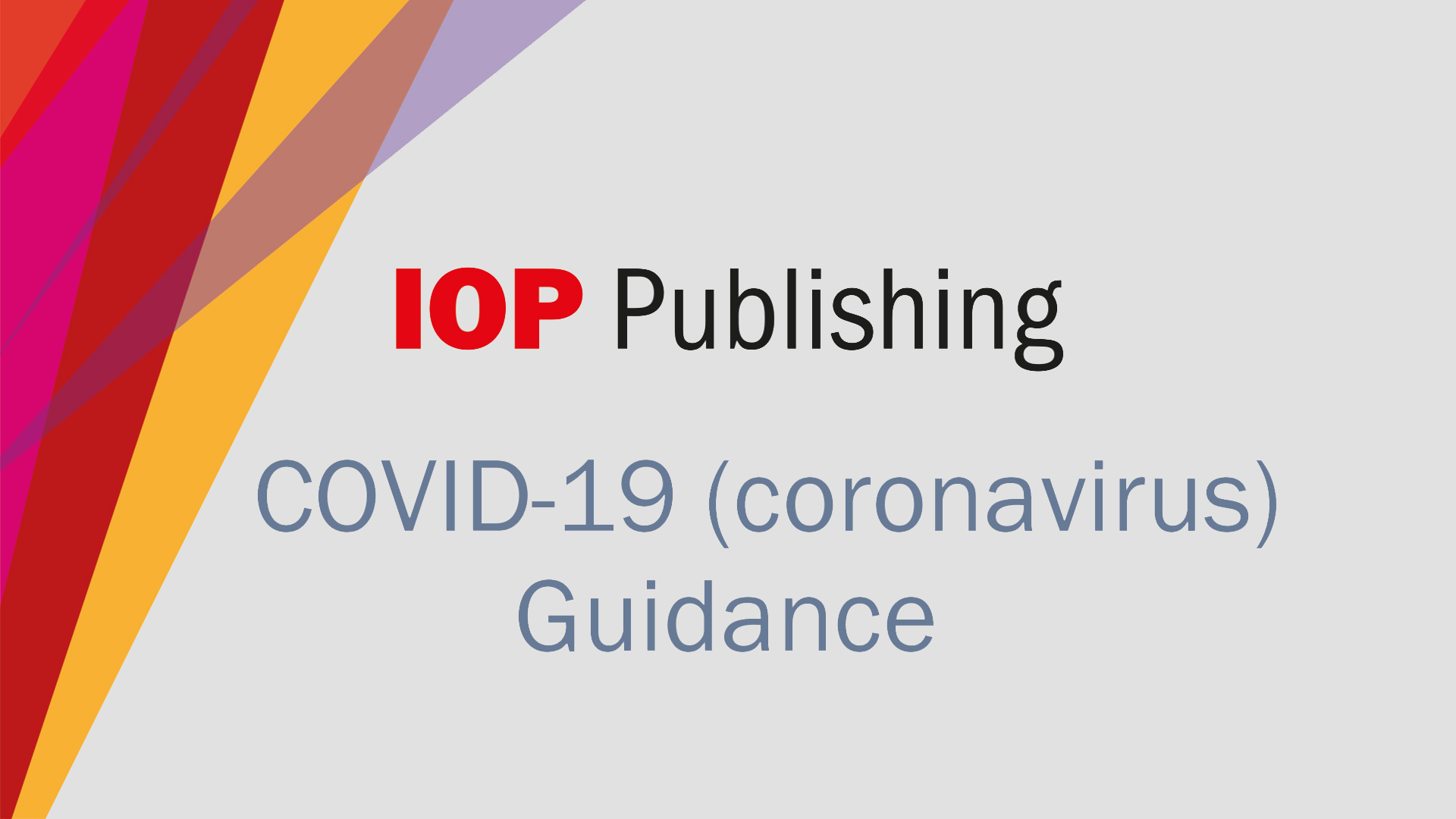IOP Publishing acknowledges the devastating impact Coronavirus (COVID-19) is having around the world. Ensuring a safe environment for our employees, customers and business partners is our key focus, while minimising disruptions to allow our services to continue. This outlines the measures we have taken – these will be adjusted as necessary as we regularly assess developments.
What precautions are you taking for staff in areas of the world affected by Coronavirus?
The wellbeing and safety of everyone remains our priority. To minimise the risk to staff, many of our employees are successfully working remotely. We continue to monitor the situation closely and proactively follow healthcare and government advice.
Has Covid-19 impacted your ability to deliver services to customers?
We have established continuity plans in place to effectively manage situations like this. To date, our business has continued uninterrupted worldwide, however this could change depending on the situation in parts of the world. Access to all our systems remains unaffected, including access to our content hosting platform IOPscience.
Are you offering extensions to researchers in affected areas?
Yes. We have been offering extensions for any researchers whose ability to work is affected by the Coronavirus outbreak. We understand that many may find it difficult to meet journal deadlines and encourage anyone who needs an extension to contact their relevant journal team or customerservices@ioppublishing.org with their manuscript number.
Will publication of my article or ebook be delayed?
All staff including our production vendors in India have adapted working practices in response to the requirements of lockdown and social distancing, and we are working together to provide support and assistance where needed. We are continuing to ensure your article or book will be produced to a high standard and in a timely manner and apologise for any delays you might have experienced. If you have any questions or concerns relating to your article or book, please contact the relevant journal team, commissioning editor or customerservices@ioppublishing.org with your manuscript number or book title.
Are you enabling access to content for students and researchers who are unable to make it to campus?
Yes. We will work with any customers who may need it to enable remote access to IOPscience. We have also taken steps to ensure our systems are ready to manage any increase in web traffic that may result from online-only working. For guidance on subscriber access to content on IOPscience throughout the coronavirus outbreak, see our remote access guidelines.
In China, we have partnered with the CARSI Federation to enable researchers and students in China remote access to IOPscience without the need for campus IP addresses or VPNs. For more information, please visit the guidance page on our dedicated IOPP China site.
Will you be extending renewal periods for journal subscriptions?
To ensure uninterrupted access, on a case-by-case basis we are extending renewal periods for subscribers.
Will I still receive print copies of journals?
We have been able to continue with our journal subscription print production and distribution. However, some countries may be restricting the onward delivery of the print copies: specific postal updates can be found on the UK Royal Mail website. We will continue to assess the situation on a weekly basis. In the meantime, if you would like to pause the delivery of your print journals, please contact subqueries@ioppublishing.org.
Are you making COVID-19 research you publish freely available?
Yes. Any relevant published or forthcoming articles will be made immediately available to PubMed Central throughout the duration of the crisis, with rights to enable text and data mining, re-use and secondary analysis. We will do whatever we can to assist researchers, medical professionals, policy makers and others who are working to address this public health emergency. These articles can be found here.
